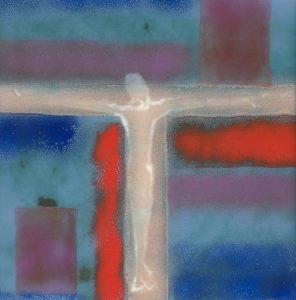“Compassionate of heart, gentle in word, gracious in awareness, courageous in thought, generous in love.” (John O’Donohue)
This is Holy Week – This is the summit of the Liturgical Year. Everything leads to this point and flows from it. This liturgical week commemorates the final days in the life of Jesus, beginning with his entry into Jerusalem on a donkey. This day is celebrated as Palm Sunday and recalls the welcome accorded to Jesus by palm-waving crowds shouting “Hosanna in the highest!” They were welcoming one whom they recognised as the prophet and promised Messiah.
This week brings us face to face with the stark human experience of Jesus. It brings us face to face with the experience of a suffering humanity and planet. The body of Christ is crucified in the many people who suffer betrayal, rejection, harassment, isolation and persecution.
The body of Christ is crucified when there is a terror attack in any part of the world; when there is a chemical strike on helpless people; when a person is vilified for his or her belief; when a person is discriminated against because of his or her social status, skin colour or sexual orientation; when a person or family has to flee their home as refugees; when a person is the victim of domestic violence and abuse; or when the rights of the young, the aged or yet unborn are violated. The body of Christ stands crucified in the callous abuse of the environment and the indiscriminate plundering of Earth.
Holy week is an invitation to enter consciously into the human condition and our experience of God. The experience of suffering, loneliness, pain, rejection, and the seeming darkness and abandonment by God, cause us to question our belief in and our image of God. Who is God for you when life tears you down? What do you hold on to when life treats you thus? Who was God for Jesus as he ate his last meal with his disciples, as he washed their feet, as he prayed in Gethsemane, as he carried his cross to Calvary, as he hung dying on the cross? In Mathew’s Gospel Jesus invites us to learn from him when he says, “Come to me, all you who are weary and burdened, and I will give you rest. Take my yoke upon you and learn from me, for I am gentle and humble in heart, and you will find rest.”
Jesus invites us to learn from him throughout this week and to walk with him. He wants to assure us that even though everything might appear to be such a mess, God is there with me right in the midst of it all. Can I recognise God present in my daily human condition? Can I relate to the words, “This is my Body – blessed, broken and shared”? Am I able to resonate, “If it is possible, may this cup be taken from me. Yet not as I will, but as you will.” Can I cry out with Jesus, “My God, my God, why have you forsaken me?” and then with him whisper, “Into your hands I commit my spirit.”
Holy Week is about commitment and belief, selfless giving and surrender. It is about growing in an understanding of the constant and tangible presence of God in our lives. It is about recognising God in the human condition of every day. It is being able to recognise that the darkness of the tomb is akin to the darkness of the womb.

READ: The Holy and the Human
WATCH: A Holy week Reflection
CONSIDER: Spend some time considering the darkness and emptiness of Holy Saturday.